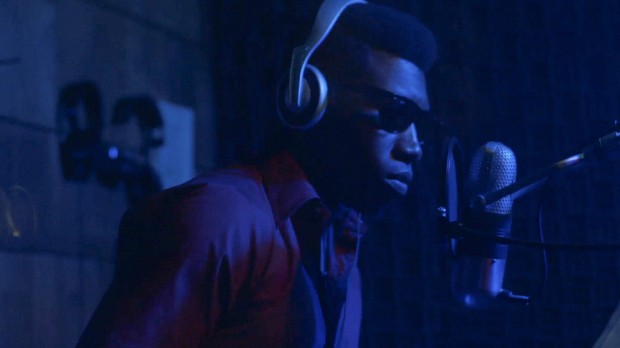Deep within the tumultuous, creative mind of musician Willis Earl Beal (played by the real-life musician of the same name) is where writer/director Tim Sutton‘s Memphis takes place. When we first meet Willis, he’s talking big and bad at the host of a local Memphis talk show. He describes his work as “sorcery,” a kind of trickery of the human soul.
What follows is Willis’ fight against normalcy. Though it’s clear the man has found some success in the music business, he spends his days wandering around Memphis on his own, mumbling to himself and those around him. He’s got a mostly ex-lover and child he barely sees and a fleeting wish to rediscover his faith. In one poignant scene, Willis, dressed in a sloppily put-together suit, attempts to address an excited congregation only to go speechless.

There’s very little in the way of plot here, and the aimlessness of the film’s central character will surely detract some looking for something a bit more concrete in the form of storytelling. But then it’s the aimlessness that defines Memphis. Willis is clearly full of immense talent, evidenced each time we watch him attempt to record a new track or write a new song. At one point in the film, a Memphis local tells Willis he “owes God a debt” for the gift that’s been bestowed upon him.
Whatever that debt may be, Willis is paying it throughout the film. Slowly and painfully we watch the man chip away at himself. Each minute his face wears down and his clothes stain. Shot by Chris Dapkins, the film finds the beauty in some incredibly despondent moments. Consider a scene in which the back window of a car is shattered. As the car speeds away we watch the remaining glass slowly fall away from the window frame. Dapkins and Sutton are clearly in sync throughout the picture, the visual aesthetic paralleling the tragedy of Willis’ wasted ability.
This is Sutton’s second feature, following Pavilion, which played at SXSW in 2012. Certainly a filmmaker with a distinct vision, taking some cues from the likes of Gus Van Sant or Jim Jarmusch, Sutton is confident in letting his lead command the screen for most of the film. There’s a self-awareness to both Sutton’s direction and Willis’ performance that deflates some of the potential pretentiousness from the proceedings. Some of the time, while Willis is on a rant about glory and time and space, he’ll finish the diatribe with a loud laugh. Somewhere inside, this artist knows he is imploding and all he can do is smile.
Memphis premiered at Sundance Film Festival 2014. One can see our full coverage of the festival below.


